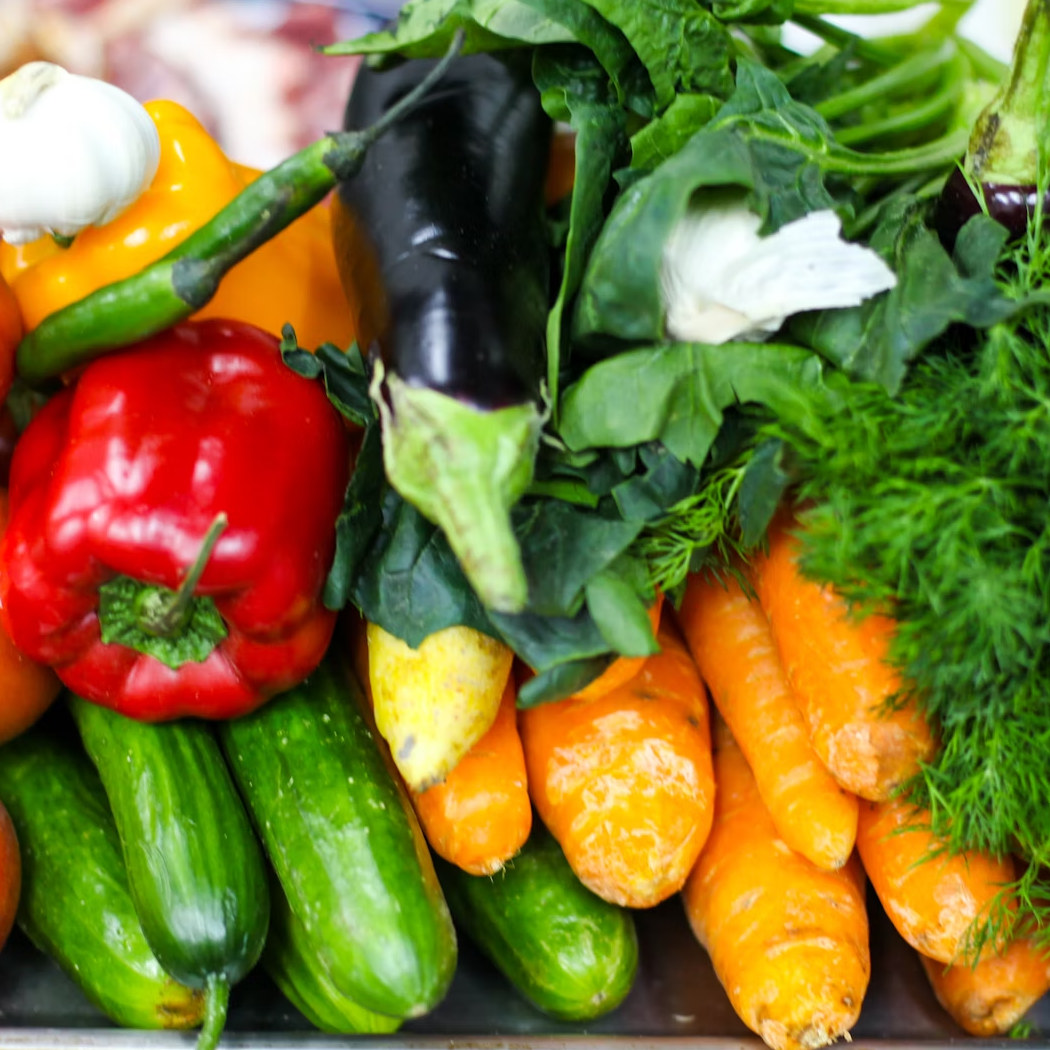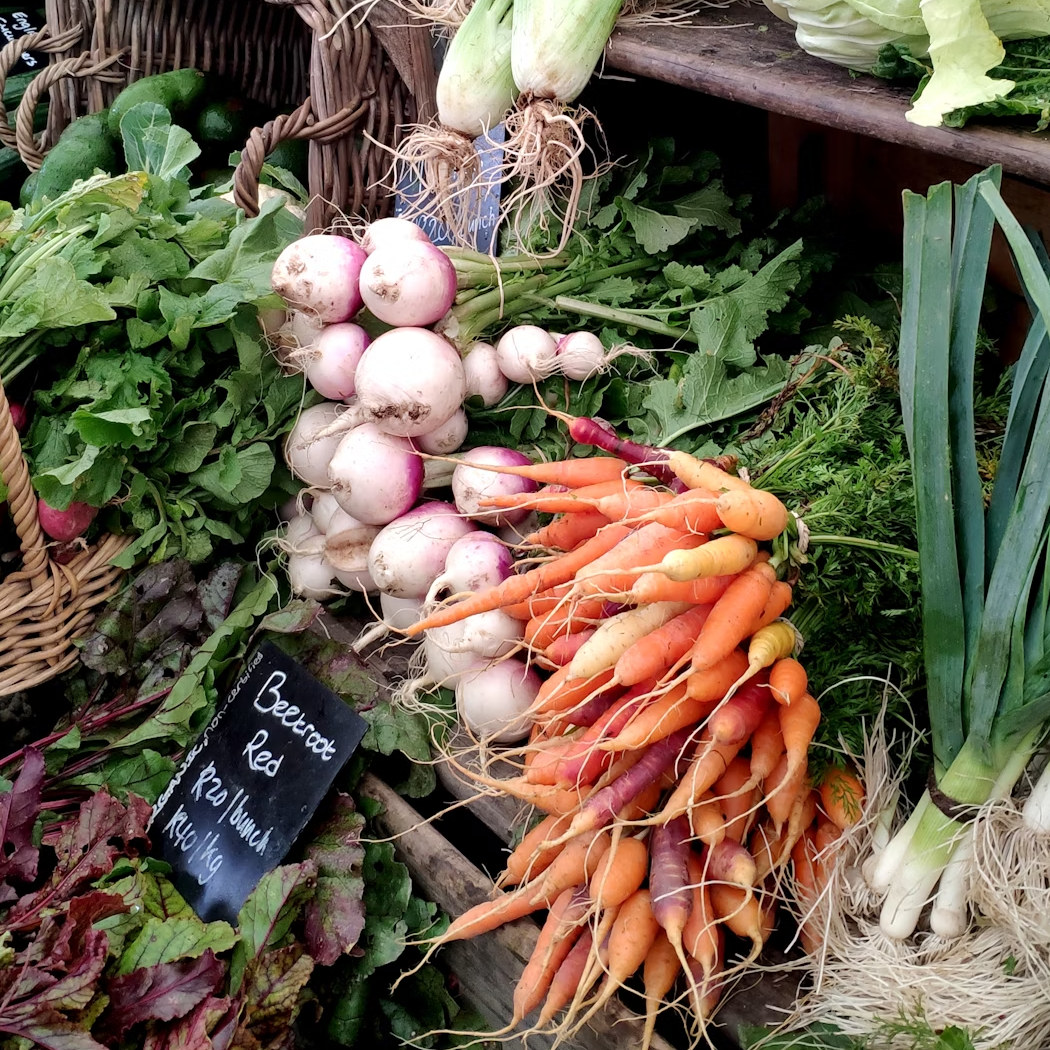News
Australia is ranked #1 in organic agricultural land usage! Celebrate Australian Organic Awareness Month - Part 2
September 19, 2024

Australia is ranked #1 in organic agricultural land usage! Celebrate Australian Organic Awareness Month - Part 2
September is Australian Organic Awareness Month! In a previous blog, we listed why we chose to go certified organic at Garden of Vegan. Now we'll present some additional information to show you how organic agriculture helps the planet and of course your health:
Australia is ranked first in organic agricultural land usage
According to organic land usage, Australia is #1. In fact, according to researcher M. Shahbandeh, who specializes in focusing on the agriculture industry, "In 2022, Australia was ranked first with an organic agricultural land area amounting to about 53 million hectares. The land area used for organic agriculture in Australia is thus larger than the acreage of all the other leading countries combined."1. So you can see that not only does Australia take organic agriculture seriously, but that it also means that businesses that purchase organic products are helping drive this growth.
Organic farming is better for the environment.
Researchers know that organic farming has many benefits in comparison to conventional farming. The benefits to the environment are in addition to the benefits that organic farming offers to the farmers, the nearby communities, and the customers.
- Biodiversity
Removing pesticides and synthetic fertilisers retains biodiversity as it allows multitudes of native flora including plants, insects, and mammals to thrive. For example per research, "Weeds that would otherwise attract beneficial insects are eradicated with conventional practices, and migratory species that rely on plant life see a halt in their population numbers."2 In addition, "Biodiversity in Ecosystems studies indicate that organic farms have a 30% increase in species biodiversity, and a 50% increase of beneficial microorganisms than conventional farms"2 So organic farming preserves these species and ecosystems.
- Soil structure and carbon impacts
Organic farming helps maintain soil structure by increasing soil organic matter which also aids in water retention. And, this 'plays a massive role in carbon sequestering which directly impacts our fight against climate change'2. It should be noted that because land use contributes to about 25% of global CO2 emissions, countries should adopt organic farming to do their share in reducing CO2 emissions.
- Water pollution and runoff
Water pollution from pesticides, herbicides, and synthetic fertilisers has a large impact on insects, fish, other marine species, migratory mammals or birds. In addition, this polluted water can also seep into the ground and create dead zones near industrial farms. Furthermore, water pollution that taints drinking water can cause problems for adults, infants, and animals.
- Phosphorous, Nitrogen and Potassium
As conventional farming relies on the use of phosphorus, nitrogen, and potassium, this creates a multitude of other problems. First, these chemicals are shipped to farms across the world, hence using boats, trucks, and trains adds to the CO2 output. In addition, some of the chemicals are deemed toxic: "Phosphorous also requires additional energy expenditure as it contains heavy metals that are toxic to humans and soil."2, So both the extra massive impact of CO2 via transportation as well as heavy metals, shows that it is beneficial to stop using those chemicals.
- Food Waste
Organic gardens or industrial composting also have the added benefit of not wasting food. As it stands, "The Australian Government states that each person in Australia wastes 300kg of food per year, and food waste accounts for a whopping 5% of annual greenhouse gas emissions."2. So reusing food scraps and food waste not only removes them from municipal dumps or burning, but food waste can be composted hence having a net positive on the environment as first, the scraps are reused, and second, fewer chemicals will be needed because that compost will be used to help the next generation of organic crops grow.
Organic food? Is it too good to be true? Is it monitored or tracked?
In Australia, there is no regulation for the term ‘organic’. For example, "Due to the lack of domestic regulation in Australia, you might find products with as little as 2% organic ingredients making an organic claim on their labelling."3 But there are strong monitors and procedures for food producers labeled 'certified organic'!
"For a food product to be labelled certified organic in Australia, it must have gone through a strict certification procedure including inspection and approval by an independent, third-party organic certification agency. These rigorous assessments ensure that the farm, manufacturer, and final product complies and adheres to relevant standards, such as the National Standard for Organic and Bio-dynamic Produce (required for export) or the Australian Certified Organic Standard (ACOS)."3
Furthermore, "Organic farms and food manufacturers in Australia are monitored under one of the strictest food regulatory programs in the world. Any person buying organic food endorsed with a certification mark such as the Australian Certified Organic ‘Bud’ logo (the most recognised organic mark by Australian shoppers) can be assured their food has been handled with care, without the use of harsh synthetic chemicals or additives, from ‘paddock to plate’."3
So certified organic food buyers know that their foods are 100% organic!
Why We Choose to Be Certified Organic at Garden of Vegan
At Garden of Vegan, our mission is clear: to promote human and planetary health through delicious, organic plant-based meals. Every ingredient we use is certified organic, meaning it meets rigorous standards set by Australian Certified Organic (ACO). Our choice to go organic stems from our commitment to quality, sustainability, and health.
By being 100% organic, we ensure that our meals are not only delicious but also the healthiest option available. We are proud to use ingredients that are free from synthetic chemicals, pesticides, and GMOs, supporting your well-being and the environment with every bite.
Eat healthy with delicious, certified organic meals!
Stay Organic. Stay Healthy. Stay Inspired.
#OrganicAwarenessMonth #GardenofVegan #EatOrganic #SupportLocalFarmers
References:
1. Organic agricultural land area worldwide in 2022, by leading country - Statista
2. Why organic farming is better for the environment and how we can help - Charles Sturt University
3. Organic Food Production - Australian Organic
SHARE VIA
Related Articles
 News
News
New Organic Agriculture Study. Soil treated with organic fertiliz...
October 15, 2024 News
News
Embracing Organic: Celebrating Australian Organic Awareness Month...
September 12, 2024 News
News
Testimonials! What Our Customers Think Of Us
April 05, 2024 News
News
